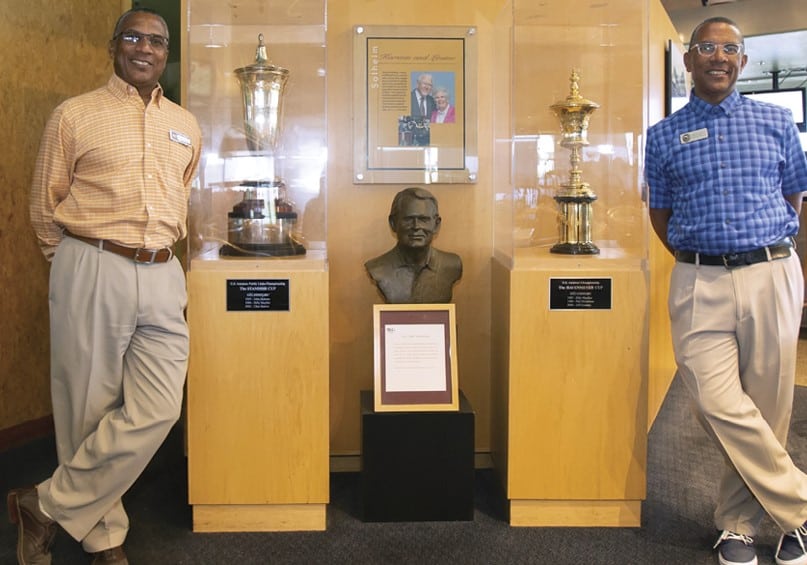One of the most important responsibilities for managers is developing the next generation of leaders and preparing them for the professional challenges they will face. The most obvious way to develop leadership qualities is simply to pay your knowledge forward by identifying the most important lessons you’ve learned — often the hard way — and passing them on to your team.
That responsibility starts with acknowledging that agronomic knowledge is simply table stakes. Knowing how to grow turf and keep it healthy is expected of anyone in the superintendent role, and most up-and-coming turf managers come to the job well prepared. GCSAA educational programs and the generous teaching of consulting specialists and suppliers go a long way in helping to lay this foundation. Certainly, the college of hard knocks provides its lessons as well.
But what lessons will you teach your assistants and crew members? And how can you help prepare them for their next opportunity to move into more responsible positions? In addition to making yourself available as a mentor, you can also broaden your own knowledge by paying attention to what your most respected peers consider their priorities. Here are suggestions from two of the best in the business.
Bill Cygan is the exceptional young superintendent at Silver Spring Country Club in Ridgefield, Connecticut. After graduating from the University of Massachusetts-Amherst, Bill spent six years as an assistant at Innis Arden Golf Club in Greenwich and another six years caring for the West Course at Winged Foot.
Build strong relationships and communicate often.
“This is not easy and doesn’t happen overnight, but the stronger your relationships are at the club, the smoother the ride will be, especially during times of adversity,” Bill says. “Relationship building should include department managers — especially the golf pro, controller and general manager — as well as certain key members of the club, including the green chairman and treasurer, who can be important allies.”
Trust your teammates.
In addition to the administrative leaders with whom a successful superintendent works, Bill adds, “Be sure to build a strong team responsible for the daily golf course maintenance operations.” The strength of the team is your strength.
Carlos Arraya, the assistant general manager at Bellerive Country Club in St. Louis, began his career as a golf course superintendent and over two decades has grown into a key leadership position at one of America’s finest clubs, having hosted the 100th PGA Championship in 2019. Carlos teaches several key points of focus:
Lead the way.
“Understand your leadership style and voice,” he says, adding that managers who favorably influence the next generation of leaders practice mindfulness, leaving their ego at the shop door, putting the interests and needs of their crew ahead of their own and recognizing a job well done. Further, he recommends continue evolving as a leader to best handle the needs of a changing workforce.
Be present.
Some managers are overly focused on the next job, but Carlos counsels: “Focus on being great in your current role.” One can never know too much; by the same token, one can never know everything, so don’t pretend that you do.
Hone your own character.
Superintendents and managers of all descriptions work in the proverbial glass house. The key to being effective at each level is understanding that one is setting an example for others up and down the organizational chart. “Know the difference between an excuse and a reason,” he says. “And don’t fall into the trap of professional jealousy.”
Rely on science.
“(Superintendents) are trained in the scientific method. But sometimes we overreact and are too quick to make a decision,” he says. Club and course managers can pressure superintendents, especially when times are tough, to have immediate answers. “Be deliberate, rely on the science.”
Developing young people into experienced and highly effective crew members, ones who will one day lead their own operations, is one of the most important jobs of any superintendent. And only when you lose some of your best people, when they move on to the top job at another club or course, you will know that you’ve been successful.
This article was authored by Henry DeLozier for Golf Course Industry magazine.












